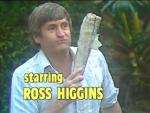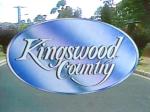AustLit
Latest Issues
AbstractHistoryArchive Description
Developing out of a skit on The Naked Vicar Show, this was a highly popular sit-com that, as Moran notes in his Guide to Australian TV Series, 'rivalled the success of My Name's McGooley in the 1960s and was surpassed only by the success of Hey Dad on the same network a few years later.
The series centred on the Bulpitt family, particularly patriarch Ted: a bigoted, conservative, blue-collar Australian and WWII veteran devoted to television, his racing greyhounds, and his Holden Kingswood.
Despite its popularity, the program was criticised for the out-spoken bigotry of its protagonist, including (but not exclusively) towards his Italian son-in-law.
Moran says of the program that 'The series was well plotted and funny, most especially Ross Higgins in the role of Ted.'
Publication Details of Only Known VersionEarliest 2 Known Versions of
Works about this Work
-
Class Acts : TV Larrikins and the Advent of the Ocker, 1957–1984
2023
single work
criticism
— Appears in: Journal of Australian Studies , 2 vol. 47 no. 2023; (p. 344-359)'Stephen Fry has described the typical American comic hero as a freewheeling “wisecracker” compared to the English type, who is apt to be an aspirational lower-middle-class failure. With Fry as a prompt, we consider humour and class in the evolution—or devolution—of that representative local hero, the larrikin, during Australian television’s first three decades. This was a period that saw a realignment of the nation’s political, economic and cultural affiliations away from Britain towards the US, and in which the ocker came into sudden prominence as a less benign version of rowdy male identity. If media larrikins such as Graham Kennedy and Paul Hogan excelled at the kind of sketch-based humour that had its origins in vaudeville and were unsuited to sitcoms, ocker characters such as Wally Stiller from My Name’s McGooley and Ted Bullpitt from Kingswood Country found a home there. Our analysis of larrikin and ocker humour is triangulated with that of Norman Gunston, as played by Garry McDonald: a desperately aspirational failure with his own mock variety show who emerged from the dialogue between these two comic types. We conclude with some thoughts on post-ockerism and the emergence of the bogan.' (Publication abstract)
-
Class Acts : TV Larrikins and the Advent of the Ocker, 1957–1984
2023
single work
criticism
— Appears in: Journal of Australian Studies , 2 vol. 47 no. 2023; (p. 344-359)'Stephen Fry has described the typical American comic hero as a freewheeling “wisecracker” compared to the English type, who is apt to be an aspirational lower-middle-class failure. With Fry as a prompt, we consider humour and class in the evolution—or devolution—of that representative local hero, the larrikin, during Australian television’s first three decades. This was a period that saw a realignment of the nation’s political, economic and cultural affiliations away from Britain towards the US, and in which the ocker came into sudden prominence as a less benign version of rowdy male identity. If media larrikins such as Graham Kennedy and Paul Hogan excelled at the kind of sketch-based humour that had its origins in vaudeville and were unsuited to sitcoms, ocker characters such as Wally Stiller from My Name’s McGooley and Ted Bullpitt from Kingswood Country found a home there. Our analysis of larrikin and ocker humour is triangulated with that of Norman Gunston, as played by Garry McDonald: a desperately aspirational failure with his own mock variety show who emerged from the dialogue between these two comic types. We conclude with some thoughts on post-ockerism and the emergence of the bogan.' (Publication abstract)
Awards
- 1983 winner Logie Awards — Most Popular Comedy Program
- 1982 winner Logie Awards — Most Popular Comedy Program





